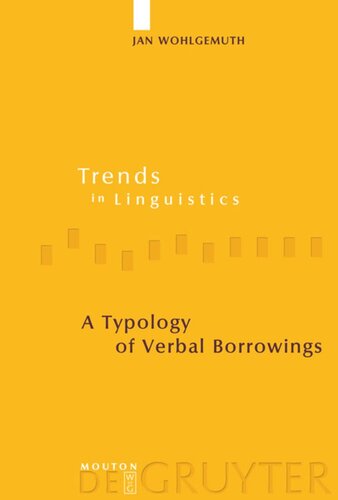

Most ebook files are in PDF format, so you can easily read them using various software such as Foxit Reader or directly on the Google Chrome browser.
Some ebook files are released by publishers in other formats such as .awz, .mobi, .epub, .fb2, etc. You may need to install specific software to read these formats on mobile/PC, such as Calibre.
Please read the tutorial at this link: https://ebookbell.com/faq
We offer FREE conversion to the popular formats you request; however, this may take some time. Therefore, right after payment, please email us, and we will try to provide the service as quickly as possible.
For some exceptional file formats or broken links (if any), please refrain from opening any disputes. Instead, email us first, and we will try to assist within a maximum of 6 hours.
EbookBell Team

0.0
0 reviewsThe questions as to why most languages appear to have more trouble borrowing verbs than nouns, and as to the possible mechanisms and paths by which verbs can be borrowed or the obstacles for verb borrowing, have been a topic of interest since the late 19th century. However, no truly substantial typological research had been undertaken in this field before the present study.
The present work is the first in-depth cross-linguistic study on loan verbs and the morphological, syntactic and sociolinguistic aspects of loan verb accommodation. It applies current methodologies on database management, quantitative analysis and typological conventions and it is based on a broad global sample of data from over 400 languages and the typological data from the World Atlas of Language Structures (WALS).
One major result of the present study is the falsification, on empirical grounds, of long-standing claims that verbs generally are more difficult to borrow than other parts of speech, or that verbs could never be borrowed as verbs and always needed a re-verbalization in the borrowing language.